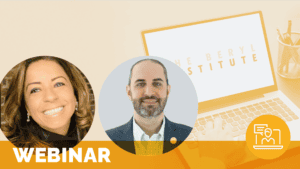PX Chat on PFA/PFACS: Revitalizing/Rebuilding (October 1, 2025)

12pm ET / 11am CT / 10am MT / 9am PT – Join The Beryl Institute community for an opportunity to connect with your peers on the support and resources needed to address efforts around revitalizing and rebuilding PFAs and PFACs in their organizations. Breakout discussion groups allow you to share your challenges, celebrate your successes, and discover what other organizations are doing.
Inspired by the work of The Beryl Institute GPFAB, PXPF Patient & Family Partnership Workgroup, and sparked by community PX chats, a series of monthly PX Chats focused on various stages of the PFA/PFAC engagement have been scheduled.
PX Chats are a member benefit. This event does not offer patient experience continuing education credit (PXE).
Related content
-
 Patient Family & Community Engagement
Patient Family & Community EngagementA Passage of Advocacy and Listening: How My Name and Experiences Shaped My Purpose in Healthcare
By Typhany Morrison-Brooks I was born Madelyn Morrison without a middle name because my mother wanted me to have the space to choose one someday. I arrived a couple of months early, weighing just 4 pounds. They had already picked “Madelyn” for me, but as I lay in the incubator, I flipped myself over, earning
Learn more -
 Culture & Leadership | Patient Family & Community Engagement
Culture & Leadership | Patient Family & Community EngagementNational Human Experience Movement Led by SOBREXP in Brazil
Global Headliner Webinar Series (Complimentary) – Join this webinar to discover the inspiring journey of Brazil’s National Movement in Human Experience, led by SOBREXP, the Brazilian Society of Patient Experience and Person Centered Care. Learn about the timeline, strategies, challenges, and key achievements that have shaped this groundbreaking effort to elevate the human experience. Tuesday,
Learn more -
 Patient Family & Community Engagement | Staff & Provider Engagement
Patient Family & Community Engagement | Staff & Provider EngagementConnecting Compassion for Patients with Health Care Worker Wellbeing
2pm ET / 1pm CT / 12pm MT / 11am PT – As a CPXP and recent cancer survivor, I encourage my fellow CPXPs to embrace patient suffering and take on the responsibility of fostering true compassion to reduce it. This presentation will explore: understanding who patients are, what they need, and how compassion can
Learn more
